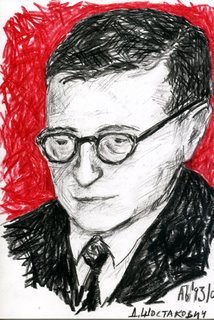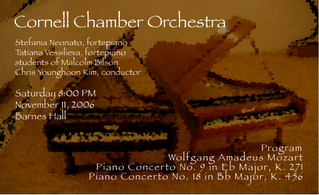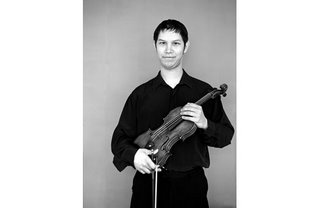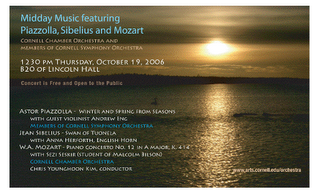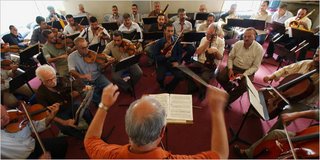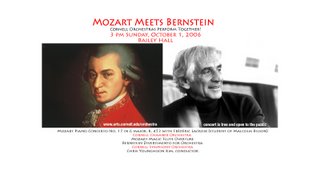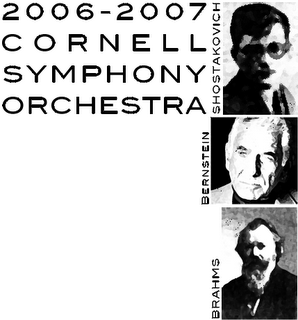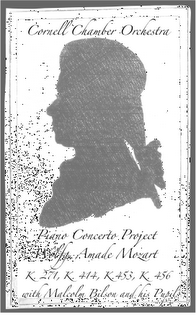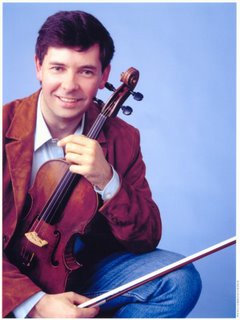Here are some headlines concerning music around the world.
If you find an interesting article email it to me and I will post it.
Comparing New Opera Houses In Oslo And Toronto "Where Toronto opted to build an opera house that serves its purpose and nothing beyond, Norwegians understood that such a project must address more than the narrow spectrum of opera lovers. Oslo is also in the process of burying its elevated waterfront highway and its railway tracks. The objective is to reintegrate the old harbourlands back into the city, and transform it into a mixed-use neighbourhood where people live and work. What better way to launch the regeneration than by building an opera house?" Toronto Star 09/17/06
http://www.artsjournal.com/music/redir/20060917-66226.html
The Met In Times Square Metropolitan Opera "General Manager Peter Gelb said on Friday the September 25 opening night performance of Puccini's 'Madama Butterfly,' directed by filmmaker Anthony Minghella, would be beamed live to Times Square on a giant screen." Yahoo! (Reuters) 09/15/06
http://www.artsjournal.com/music/redir/20060917-66225.html
What If Mozart Had Lived? "Mozart’s death in 1791 was probably caused by streptococcal infection, renal failure, terminal bronchial pneumonia and a matrix of other illnesses, some dating from his childhood, when the Mozart family spent years touring Europe to show off the boy genius and, to a lesser extent, his sister. Imagine how different music history would have been had Mozart lived..." The New York Times 09/17/06
http://www.artsjournal.com/music/redir/20060917-66217.html
Indianapolis Symphony Gets A New Contract The Indianapolis Symphony has a new contract with its musicians. It provides for wage increases in each of its three years, a contast to the previous contract, which got significant compensation concessions from the players. Indianapolis Star 09/17/06
http://www.artsjournal.com/music/redir/20060917-66215.html
Classical Music, The Alt Intro New To classical music and looking for a good introduction? Sure there are the classics, the greats to recommend. But Andrew Adler has an alternative list to try to tempt you. Louisville Courier-Journal 09/17/06
http://www.artsjournal.com/music/redir/20060917-66212.html
Runnicles Out At SF Opera David Runnicles will leave his post as music director of San Francisco Opera after 14 years. "We came to the conclusion that it was in mutual best interest of Donald and the company to maintain our relationship, but to give each party the freedom to pursue other options." San Francisco Chronicle 09/16/06
http://www.artsjournal.com/music/redir/20060917-66211.html
From The Top To TV From the Top has become one of NPR’s more popular programs, and is "distributed to some 250 NPR outlets and boasts some 750,000 listeners." Now it will be on TV too, in a new series broadcast from Carnegie Hall. Musical America 09/15/06
http://www.artsjournal.com/music/redir/20060917-66196.html
Paris Finally Gets A Home Back For Classical Music "Paris had become one of the last major western capitals without a world-class space devoted exclusively to symphony concerts and a permanent home for its orchestras. But the French government yesterday set out to reclaim the city's classical music heritage, unveiling a €30m refurbishment of the Art Deco Salle Pleyel in Paris." The Guardian (UK) 09/14/06
http://www.artsjournal.com/music/redir/20060914-66161.html
Robertson Gets Extension In St. Louis The St. Louis Symphony has extended the contract of popular music director David Robertson through 2010. The orchestra has enjoyed a resurgence since Robertson took over in 2005, and the new contract continues the trend of American orchestras locking up their maestros long-term, once it becomes clear that the fit is a good one. St. Louis Post-Dispatch 09/14/06
http://www.artsjournal.com/music/redir/20060914-66147.html
UK To Allow Instruments Back On Board In response to public outcry (and what it says is a diminished threat level,) the UK's Department of Transport says it expects to relax restrictions on airline carry-on bags by next week. "The changes are likely to mean bulky items, including musical instruments, will be allowed as carry-on baggage." Some restrictions, including bans on liquids and gels, are likely to remain in place for the time being. The Guardian (UK) 09/14/06
http://www.artsjournal.com/music/redir/20060914-66146.html
Conducting Comp Has Its First Female Winner The Sir Georg Solti International Conductors' Competition is only four years old, but it has already become one of the top conducting awards in the world. This year, it's also making a bit of history, handing out its top prize to a woman for the first time: 31-year-old Shi-Yeon Sung of South Korea "receives a €15,000 prize and a concert date with the Frankfurt Museum Orchestra and the Frankfurt Radio Symphony." PlaybillArts 09/14/06
http://www.artsjournal.com/music/redir/20060914-66148.html
Lebrecht: Why Shouldn't Musicians Have To Fly Like The Rest Of Us? Norman Lebrecht is unconvinced by British musicians' protests over new airline carry-on restrictions. "If an exception were made for concert soloists, executives would demand to carry their laptops, nursing mothers their baby kits and would-be jihadis their special-mix drinks. It is not even in the musicians’ own interest to set them apart as a special case for that would separate them from the rest of the human race at a time when their greatest need, in classics and jazz, is to be seen as integral and essential to the emotions and rhythms of the modern world." La Scena Musicale 09/13/06
http://www.artsjournal.com/music/redir/20060913-66139.html
Indianapolis International Violin Competition Finalists Finalists include musicians from South Korea, Italy, Bulgaria, the Netherlands, the US and Germany. would be the "survivors." They're competing for $250,000 in prizes. Indianapolis Star 09/13/06
http://www.artsjournal.com/music/redir/20060913-66132.html
Chicago Concertmaster To Retire After 48 years, the Chicago Symphony's long-time concertmaster is going to retire. "Samuel Magad made his debut with the CSO at 11 as the winner of the CSO youth auditions. He joined the first violin section in 1958 under music director Fritz Reiner and was named assistant concertmaster in 1966. Georg Solti appointed him concertmaster in 1972." Chicago Tribune 09/13/06
http://www.artsjournal.com/music/redir/20060913-66128.html
Birmingham Orchestra Launches Podcast The City of Birmingham Orchestra is launching a monthly podcast. "Members of the public will be invited to review recent concerts, and each recording will aim to explain how the musicians work together. Each free podcast can be downloaded through the City of Birmingham Symphony Orchestra's website." BBC 09/12/06
http://www.artsjournal.com/music/redir/20060912-66121.html
iTunes' Classical Top Ten Classical music sells on iTunes in greater numbers than in CD stores. But what are the most popular downloads? The list is revealing, writes Marc Geelhoed. Slate 09/12/06
http://www.artsjournal.com/music/redir/20060912-66120.html
Baltimore Symphony Contract Talks Going Well? "Both sides negotiating a new contract for Baltimore Symphony Orchestra musicians have maintained a media blackout, but, with the current contract set to expire Saturday night after the annual BSO gala, there are a few favorable signs - and also potential concerns. ... As the orchestra's management aims to balance a budget after a string of annual deficits, negotiating points may include the orchestra's size and the length of its season - factors that can affect the BSO's reputation and ability to attract and retain talent." Baltimore Sun 09/12/06
http://www.artsjournal.com/music/redir/20060912-66110.html
Paris' Salle Pleyel Reopening After four years of renovation, Paris' Salle Pleyel reopens this week. The theatre is the Carnegie Hall of Paris. "The acoustics used to be a weakness of the Salle Pleyel. To improve them, architect Francois Ceria and Artec Consultants Inc., the acclaimed New York sound gurus, have encircled the platform with a wooden wall and added four narrow side balconies and a number of rows behind the orchestra, replacing the old Cavaille-Coll organ with a human reflector." Bloomberg.com 09/11/06
http://www.artsjournal.com/music/redir/20060911-66102.html
Claim: New UK Airline Carry-on Restrictions Killing Musical Life "Restrictions on hand luggage, intended to reduce the volume of baggage going through cabin security checks, have had a devastating impact on performers. Musicians who were used to stowing their Stradivarius in the cabin fear that irreplaceable instruments will be smashed by a careless baggage handler or wrecked by freezing temperatures in the hold. Instead, they are cancelling concerts or enduring exhausting train journeys." The Guardian (UK) 09/11/06
http://www.artsjournal.com/music/redir/20060911-66096.html







